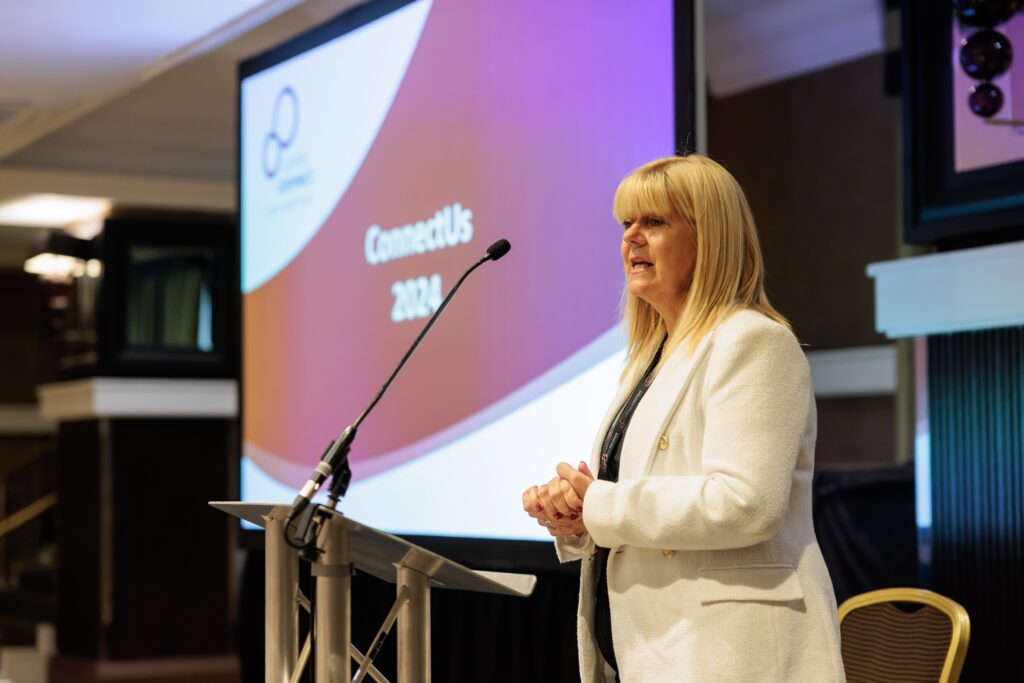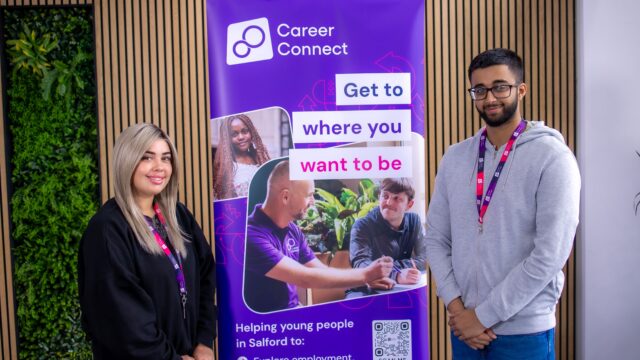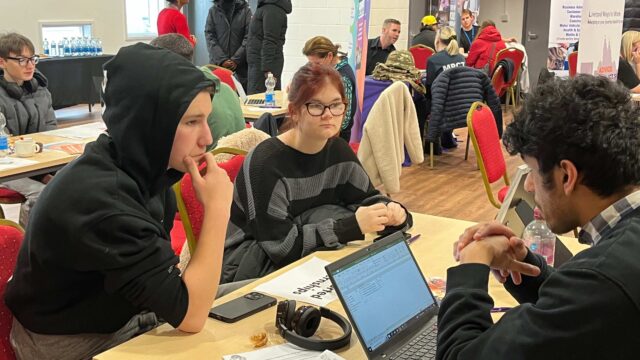Career Connect is proposing the creation of a set of qualitative benchmarks for careers support for 16-17-year-olds who are NEET – as numbers rise.

More than 90% of secondary schools and colleges currently measure their careers provision using eight benchmarks established by the Gatsby Foundation. Since their inception in 2014, the benchmarks have helped drive national improvements in school careers provision. School pupils’ career readiness is improving, and they are more likely to be satisfied with the careers guidance they receive. Higher Gatsby benchmark achievement in schools and colleges is also linked to fewer young people becoming NEET (not in education, employment or training) at age 16 and 18.
Career Connect is now calling for the creation of a set of benchmarks for careers services provided to 16–17-year-olds who are NEET. These would serve the same purpose of setting quality standards and allowing performance to be assessed.
Latest ONS Figures
The latest ONS figures are due imminently, but ONS figures for November 2024 show that there are 946,000 16-24-year-olds in the UK who are classed as NEET, an increase of 222,000 since November 2022 (ONS). The latest ONS estimate is that 77,000 of these are young people aged 16-17 who are either NEET, or their education, employment or training status is classed as “Not Known”.
Sheila Clark, CEO of Career Connect said: “There is already a statutory requirement to ensure that all 16–17-year-olds are participating in education, training or employment. Applying qualitative benchmarks to careers support for the 16–17-year-old NEET cohort would provide a clear definition as to what ‘good’ looks like.
“It would, in effect, be a sensible extension of the Gatsby benchmarks that are already working elsewhere, but developed to suit this group, helping bridge the gap between them and their peers, who may have moved on to opportunities at age 16.
“As a careers charity working on the frontline with young people, we have already highlighted that 16-17 year olds do not appear to be a priority group within the Get Britain Working White Paper and Youth Guarantee.
“The 16-17 NEET group is at a pivotal transition point in their future planning. They are also a group whose education was impacted by covid at a young age, and during the important transition to secondary education.
“We are also seeing significantly more young people in this group with complex needs. In the areas where we work, we’ve seen a more than 100% increase since 2016/17 in the number of young people we work with who have an EHCP. We’ve also seen a substantial increase – 154 % – in the number of young people who have an SEMH condition as their primary need.
“There are other key factors in terms of rising NEET numbers, such as a significant increase in the numbers of elective home education and persistent secondary school absence.
“We know that targeted early interventions before age 16 are even more effective in the prevention and reduction of NEET, but we are still far away from this being the standard.
“In the meantime, our community teams are working with growing cohorts of NEET 16–17-year-olds with needs that must be met now, or we risk long term negative outcomes for generations to come. Needs which must be fully understood, with well-placed funding to deliver the right support in response.”
Proposed Benchmarks
Career Connect has identified eight emerging areas which it proposes the NEET careers support benchmarks should cover:
- Enhanced early intervention from Year 9 (age 14) that is client-centred, and targeted to those most at risk of NEET, including for those young people that are outside of school.
- Impartial advice and guidance interventions from a qualified adviser who has skills/training to work with vulnerable groups. At least one of these interventions to be face to face.
- Consistent, accurate tracking and early identification and inclusion to reduce the numbers of young people whose status is ‘Not Known’.
- Brokering of learning opportunities that are aligned with the scale and changing needs of young people. Including providing young people with access to good quality and aspirational information about future study options and labour market opportunities.
- Multi-agency working, to make support simple to navigate. Ensuring that systems are joined up, information is shared, and that support is data-led and evidence based.
- Guaranteed ‘Bridge the gap’ opportunities for NEET young people to ‘try and test’ training, education and employment opportunities to support re-engagement – leading to softer outcomes that move a young person towards career readiness, while providing multiple opportunities to engage with careers support.
- Holistic support available to build life skills, resilience and good mental health – allowing young people’s individual needs to be addressed and embedding equality and diversity considerations throughout.
- In work/learning support for those most at risk of dropping out of provision/employment.
Involving Young People is Vital
The charity also emphasises that involving young people in the co-production and continual improvement of NEET careers support and NEET prevention services will be vital.
Career Connect is now looking to the government, careers bodies, funders and the careers sector to help further develop and test these benchmarks.
Career Connect CEO Sheila Clark believes that the plans outlined in the government’s recent Get Britain Working paper make now the optimal time to implement a NEET framework, saying:
“We know that budgets are still tight. However, with devolution for many local combined authorities edging closer, and a number of other measures outlined in the White Paper, including Trailblazer areas, Youth Zones and the establishment of Skills England, this presents us with a welcome challenge and opportunity: to launch a standard set of careers support benchmarks that give all young people who are NEET a fair and equitable chance. And, by applying this to 16-17-year-olds, we are ultimately investing to save.”
Background to Career Connect’s NEET Benchmarks proposal
Career Connect’s NEET benchmark proposal comes after their analysis of the national and local NEET picture, evidence on what is working in the areas they serve, and their 2024 national consultation on research and evidence across the careers sector. Career Connect and the Education Development Trust also led a workshop at November 2024’s Career Development Institute Conference on developing best practice benchmarks for NEET young people’s careers support.
Career Connect’s 2024 consultation (‘Careers Advice is Vital for our Future: Assessing the Evidence’) took in the views of practitioners, representatives from the major national sectoral bodies for Careers and members of the House of Lords and led to several key findings.
As well as the need for a Gatsby-like careers benchmarks for NEET young people, the consultation identified the need for more systematic sharing of best practice and a funded “What Works” research programme to inform investment in NEET and NEET prevention services.
Read the full consultation findings here.
Career Connect has also welcomed the Career Development Institute’s Valuing Careers Report and Research Directory released in December 2024, both of which address the consultation’s call for better evidence around the impact of professional Careers Information Advice and Guidance.
The charity also welcomes the DfE good practice guidance released in January, to provide non-statutory guidance to help local authorities identify and support at-risk young people before they become NEET (See Identifying and Supporting Young People at Risk of NEET).



